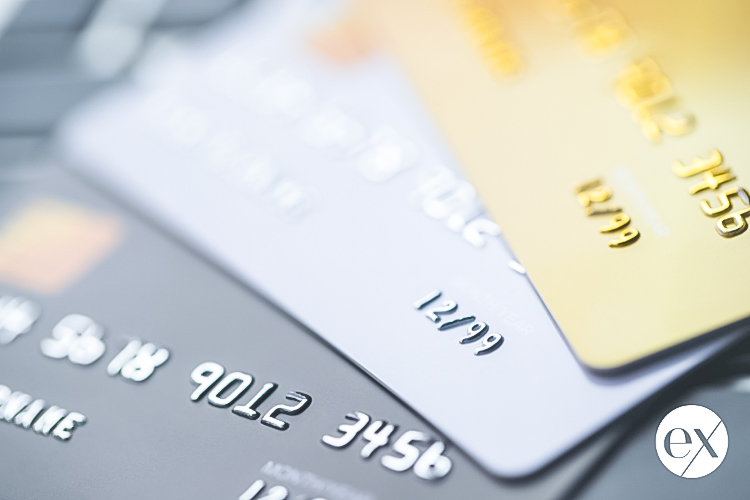
Credit Score and Divorce: From Chore to Financial Independence
Ah, the credit score. It seems like just another number that our self-worth becomes reduced to; right ladies? In all seriousness, your credit score can actually be your ally, especially during a divorce. In other words, your credit score does not have to be a chore. Instead, think of it as your financial passport. Your credit score is a form of identification that determines creditworthiness, and you want it to be valid when making a big financial move. A good credit score, typically in the range of 690 to 850, will guarantee you financial independence by securing your eligibility to make significant purchases. These purchases can be anything like renting an apartment or leasing a car post-divorce. Having a good credit score before getting divorced will make the separation period much smoother because you’ll have a greater sense of financial stability.
So, how do you build a good credit score pre-divorce?
It may seem like a daunting task, but it’s certainly not impossible. Building good credit, like building any structure, relies on a sturdy foundation. Think of your payment history as that foundation. Your payment history is a crucial determinant of your credit score, and in fact late payments can stay on your credit reports for up to seven years (Credit Karma). Paying your bills on time and in full is the best way to secure a good credit score. You can avoid late payments by devising a monthly budget so that you can determine if you have the resources to cover your expenses. In addition to that, one simple trick to avoid forgetting payments, is to set recurring calendar reminders on your phone to pay each bill before the due date.
Along with payment history, here are a few more simple steps you can take towards building a good credit score:
- Low Credit Utilization
- Many people neglect that a piece of their credit score is their credit utilization, which is the actual percentage of your credit limit that you use each month. How much you use can significantly impact your credit score. If you’re using most of that limit every single month, that will lower your credit score. If you’re only using a small portion of that limit, that betters your credit score. It’s recommended that you keep your total credit utilization rate below 10% per month. For example, if your total credit limit is $10,000, your total revolving balance shouldn’t exceed $1,000 in one month.
- Owning Multiple Credit Cards
- This may be intimidating, but having several credit cards is actually hugely beneficial for your credit risk profile. Having multiple credit cards, maintaining a credit utilization rate below 10% for each card, and paying each bill on time will significantly boost your credit score. It’s actually easier to maintain a low credit utilization rate with multiple cards because you can spread out your charges more efficiently. Plus, having multiple cards can optimize your earnings when you pair several rewards programs together. Just be wary of opening multiple cards at once, or within a short time frame, as this can potentially ding your score with compounding “hard checks.”
- Managing Soft Credit Checks v. Hard Credit Checks
- A soft credit check is when you or someone you authorize checks your credit score, like logging into one of the credit agencies and viewing your credit score. Soft checks won’t ding your score because they aren’t attached to an application for credit. Hard checks are when a financial institution checks your credit when lending you money, like applying for a car loan or a mortgage. Hard credit checks can ding your score by a few points for about 2 years.
- Keep Credit Cards Open For A While
- The life of your credit history is essential. It’s ideal to keep your credit card for 2+ years. At a minimum, keep your credit card open for a year. But, if you’re constantly just closing things after having it for a year, that’s not a great idea. Repeatedly closing cards after having them for a short term has the potential to lower your credit score. Canceling cards can signal to lenders that you’re an unpredictable buyer. It’s good to keep a credit card even when you’re not using it because it demonstrates stability.
But what if you don’t have a credit card and have never worked?
Definitely get a credit card so that you can build credit! It’s vital that you establish your own financial control when getting divorced. Some websites like Credit Karma can actually help you figure out which credit cards you can be approved for, given your individual situation. Because if you apply for a credit card and get denied, you can ding your credit score, and you don’t want that to happen. It’s a good idea to have an account with a place like Credit Karma or one of the three credit bureaus, like Experian, Equifax and TransUnion, so that anytime there’s a ding on your credit history, or if you apply for a new credit card, you’ll be notified. If you’re just getting your first card, you’re most likely not going to get a very high credit limit, and the interest rate that you’re charged is probably going to be pretty high. Just make sure you’re keeping your credit utilization low and that you’re paying the bill each month, because that can quickly impact your credit score in a good way.
The Bottom Line: Does a “perfect portfolio” exist?
Alas, there is no exact formula for the perfect credit portfolio. But, by sticking to the guidelines here will help you on a path towards good credit. It’s important to stay on top of your bills, know how much to pay and when. Have more than one credit card and maximize rewards. You can categorize your spending on each card (e.g. a credit card for groceries and a credit card for traveling). Don’t start a cycle of opening and closing cards within a short time period. Keep a low credit card utilization around 10%. There are going to be some months where your spending will be higher, but one month out of a year isn’t going to make much of a difference. It’s the months where you’re consistently spending below 10% of that credit limit that will improve your credit score.
Bottom line, building good credit is a matter of creating an awareness of your spending habits and gaining financial control. Having responsibility over your own spending and building a good credit score will allow you to develop a secure sense of independence when going through a divorce.
Leave a Comment
You must be logged in to post a comment.










